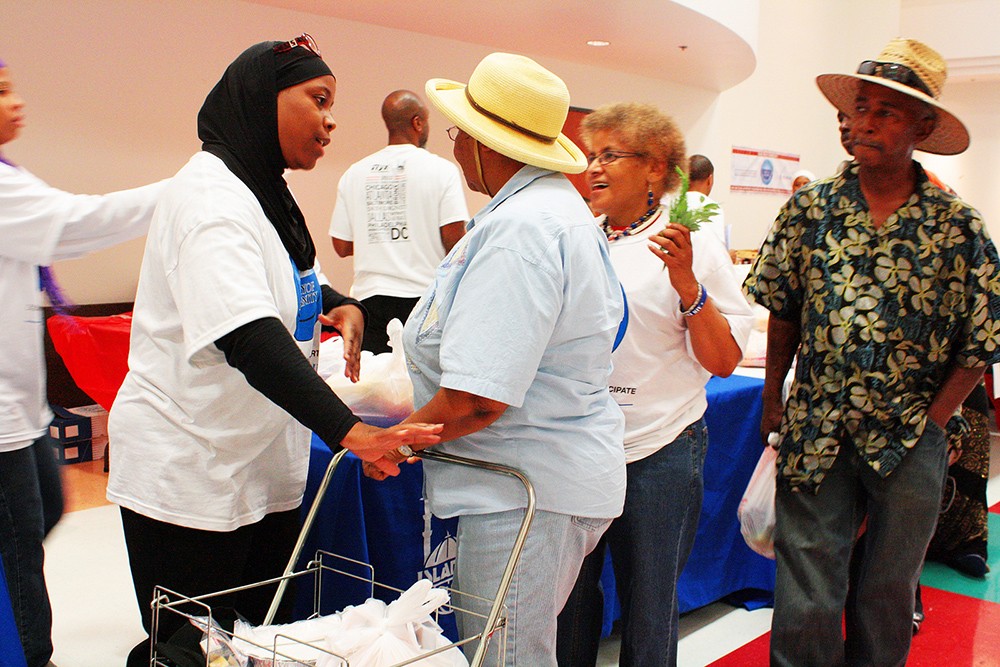Social Services and Islam

When it comes to social services, citizens from any country expect to receive support from their government in situations where they cannot fend for themselves. At the same time, it is no less of an expectation for the faithful to look toward that which they worship to provide for their needs.
Indeed, in the Islamic faith, Muslims are directed by God to ask Him for assistance in all matters and He assures acceptance: “…Pray to Me for I shall answer your prayers…” (The Holy Quran, 60:40)
During the era of the Holy Prophet (pbuh) and for a brief period afterward, Muslims found their needs addressed by an Islamic system directly under the divine supervision of the Holy Prophet (pbuh) and the Executor of his will (p). Over time, no semblance of the divine model survived the numerous line of caliphs who usurped religious leadership for personal wealth and gain.
In the case of non-religious systems, governments have come and gone, and the manner in which social needs are addressed has changed over time. However, in the case of the divine model, it has been well over a millennium since a divine (and infallible) authority from God was visible in the Islamic world. Where then do Muslims go and upon whom should they rely during this absence? The answer can be found within the religion itself, as we shall see shortly.
What are Social Services?
A social service, according to Merriam-Webster collegiate dictionary, can be defined as “A program supported by a government or private organization that helps people who have financial or family problems.” In the United States, there are many social service programs directed toward aiding the communities throughout the nation in many aspects of life, such as healthcare, food assistance, and financial assistance.
Although a divine authority from God is not visible in the Islamic world today, the religion itself still paints a picture of that original divine model which was briefly enjoyed during the era of the Holy Prophet (pbuh). Upon simple examination of the Holy Quran and authentic texts, one can identify the laws and rulings in matters of personal finance, familial relations, responsibility toward one’s neighbors and community, and much more. Together these form a robust system of social services intended to assure that no single person is left without support.
Social Service Programs Today
In fact, upon comparison, many of our country’s social service programs today resemble, to a degree, the original portrait painted by the divine model. Care for the homeless, financial assistance payments, healthcare, housing, and food assistance are all examples of social service programs that seek to attend to the “rights” of the national community. Islam explains the rights of neighbors, family, and community. Then, it identifies the responsibility one has toward others and the need to support them in the simplest ways, including such things as visiting the sick, insuring that one’s neighbors do not go hungry, caring for the orphans and the destitute, and clothing them.
How Muslims can Support Social Services
It is incorrect to assume that Muslims should only adhere to Islamic tenants and ignore the social programs of the country they adopt as their homelands. Very simply, Muslims are obligated by religious law to abide by the laws of their countries. In fact, religious dues are paid after a person has completed their financial responsibilities toward their government (for example, taxes). As a result, Muslims contribute two-fold toward the support of social service programs, once at a governmental level and once on a religious level.
This can be seen, for example, with one of the Islamic dues known as “khums.” It is a religious obligation due on one-fifth of a person’s annual net savings. This “net” is calculated after all expenses are deducted, including taxes paid to the government. These funds are then redistributed back by the religious authority to that same community to support the needy and other charitable causes, such as community centers and educational programs. As a result, communities that pay their khums regularly and do so to the authorized representatives of the religious authority, find their social services and community centers in far better condition than those who do not.
American Muslims, just as other Americans, contribute to and benefit greatly from the social services provided by the government. Islam directs adherents of the faith to give priority to family and neighbors before extending charitable assistance abroad (i.e. to their native countries). Hence it is incumbent on the faithful not to ignore participation in and support of the social services of our country and the rights of our national community.

Leave a Comment:
You must be logged in to post a comment.